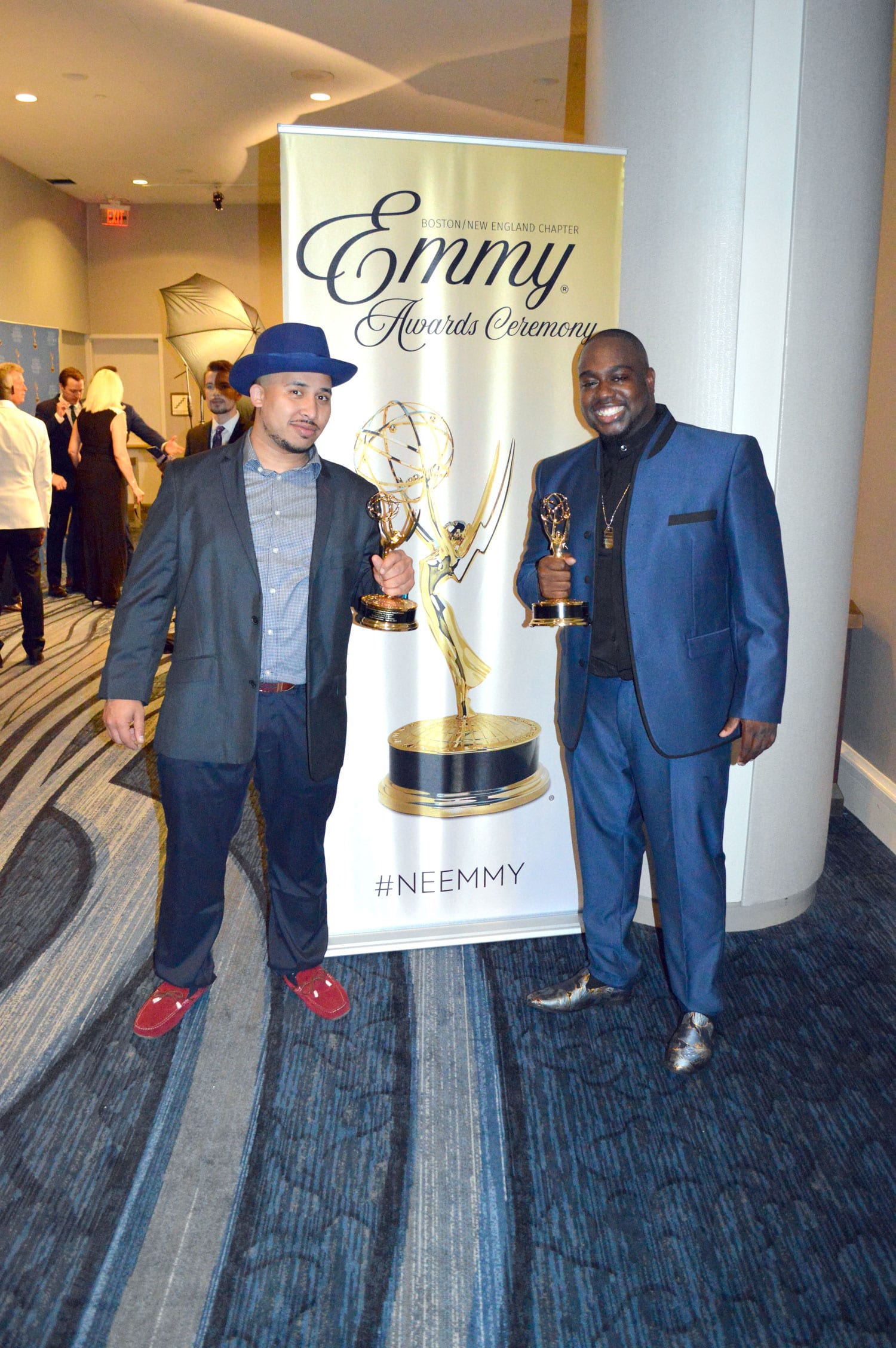LYNN — Lynn Tech teacher Noube Rateau is now an Emmy award-winning filmmaker.
While the Brockton native has dedicated his last four years to teaching radio and broadcasting at the Lynn vocational high school, he never let go of his dream. Rateau, 30, completed two full documentaries in the last five years. His latest, “Protect, Serve & Care,” focuses on the relationship between police and minorities, and won the Emmy for most outstanding documentary at the 42nd annual Emmy Awards by the Boston/New England Chapter of the National Academy of Television Arts & Sciences last Saturday.
“It was like a monkey being taken off my back, just a huge relief,” Rateau said. “I was happy and sad at the same time, though. Even though we won, there were three women I interviewed for the documentary whose sons lost their lives as victims of policing. This Emmy won’t bring back their sons.”
Rateau and co-director William Medero began work on the film in 2017 and finished last September. He and Medero began brainstorming the idea after seeing news segments about the several high-profile police shootings over the years in Oakland, New York City and Baltimore. The motto for the documentary became “National problem, local solutions.”
Not only did the co-directors speak with three mothers who lost their sons, they interviewed Boston Police Commissioner William G. Gross, a retired NYPD detective, a police chief on the South Shore and a number of men of color.
“The biggest thing I learned was there is always that one percent of a group that acts negatively and they’re the ones who end up all over the news, not the 99 percent who don’t act like that,” Rateau said. “Black men and police officers have so much in common, in regards to that one percent. The only difference is police officers can take off a uniform, black men can’t.”
After speaking with officials from police departments in Greater Boston and the South Shore, Rateau said he learned that officers are embracing new technical solutions like body cameras, which can have a major effect on how they, and the citizens they are talking to, react in a situation.
While he started the project empathizing with people of color stopped by police, he found a way to understand the feelings of the officers as well. Everyone in these interactions feel fear, Rateau said.
“I just respect people,” Rateau said. “I want to humanize these people and that was a big goal of this documentary. Officers are human. Black men are human. But, then these tragic situations happen and they go from being human beings to just another news story.”
Rateau got to share the “best moment of his life” with his family and two of his students, Edward Cuevas and Amari Gaston, who were in attendance during the awards ceremony in Boston. He called the whole experience very humbling.
“It meant a lot to me,” Rateau said. “I wanted them to see success, be surrounded by successful people, and see that success can be a reality for them.”
Next up for Rateau and Medero are documentaries about education, immigration and homelessness. He said he hopes to have one of those finished by next summer.
“I’m going to continue making documentaries for the rest of my life,” Rateau said. “I love doing it.”

